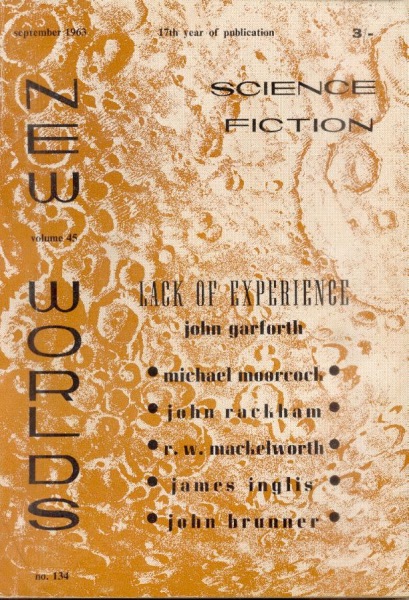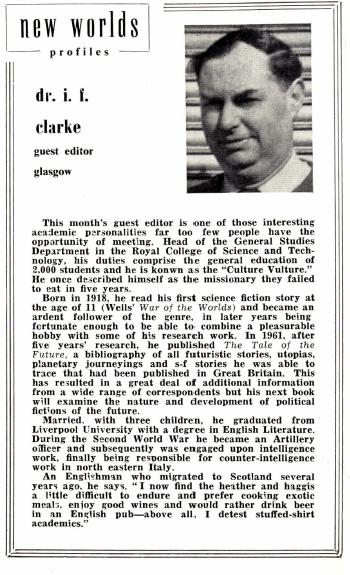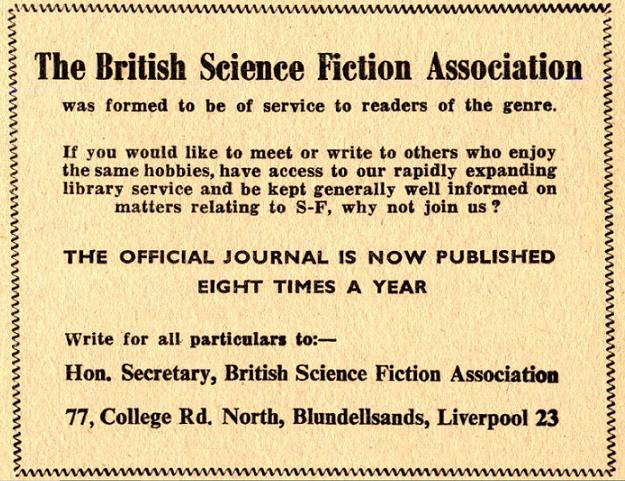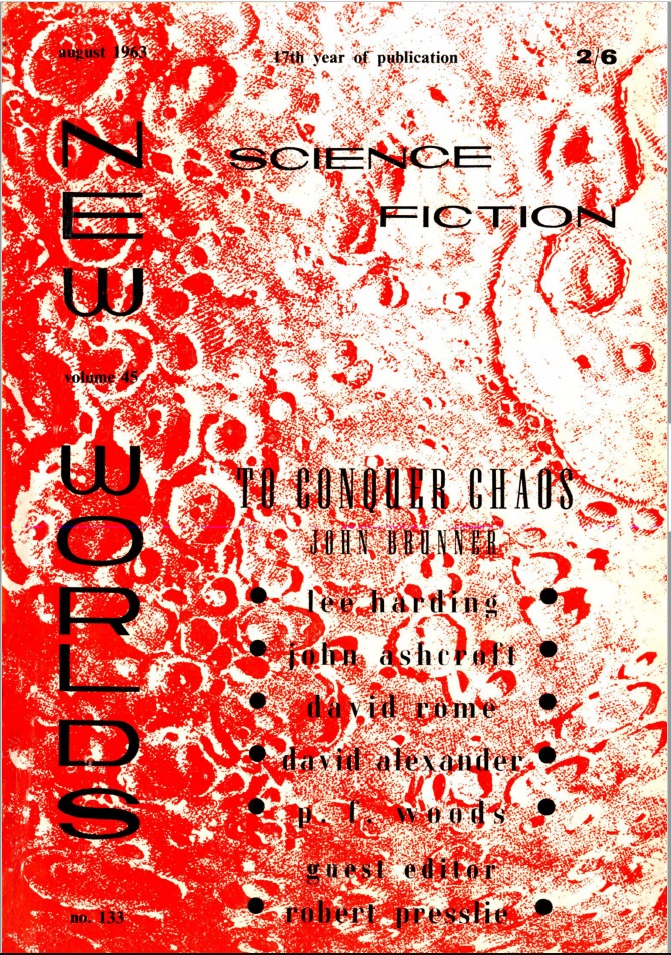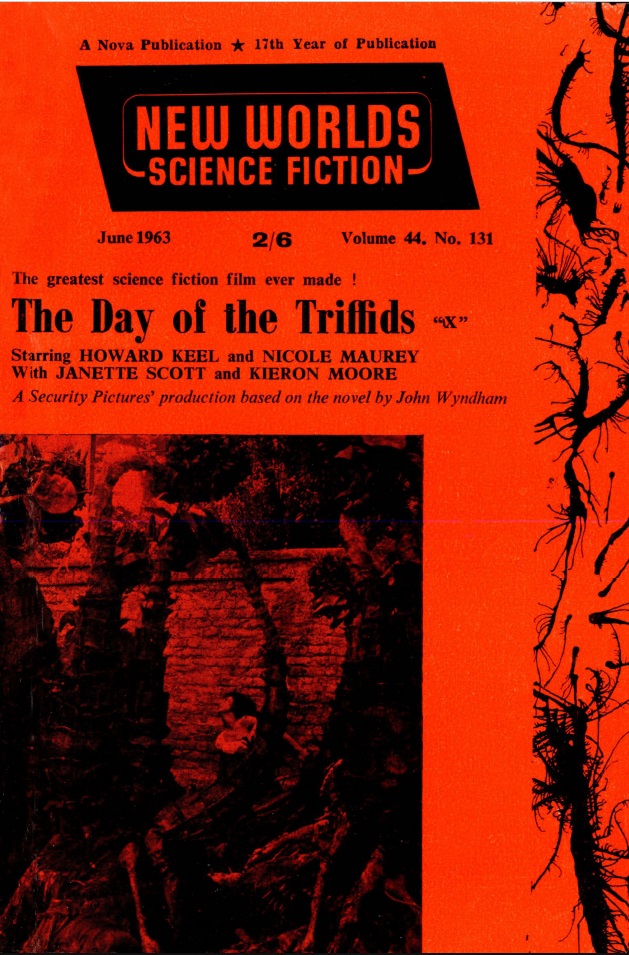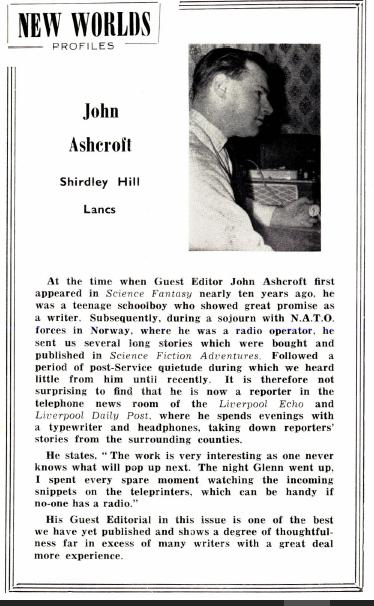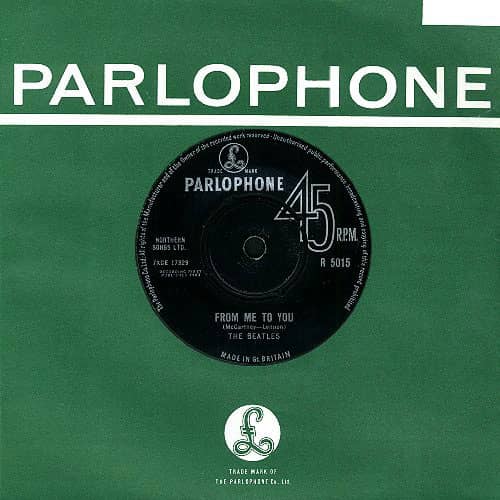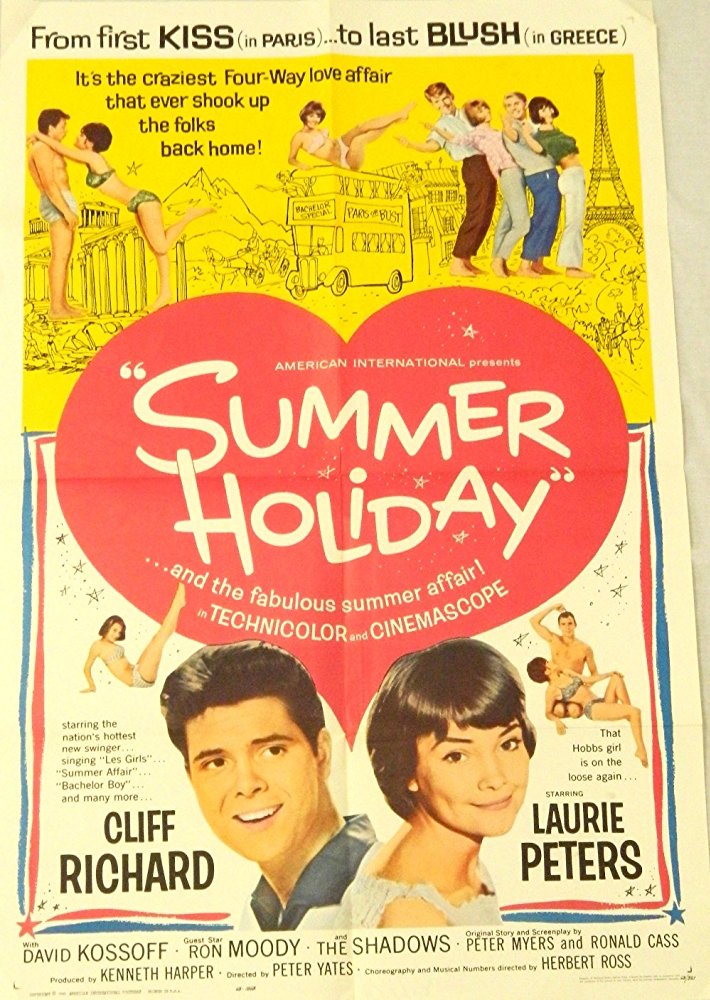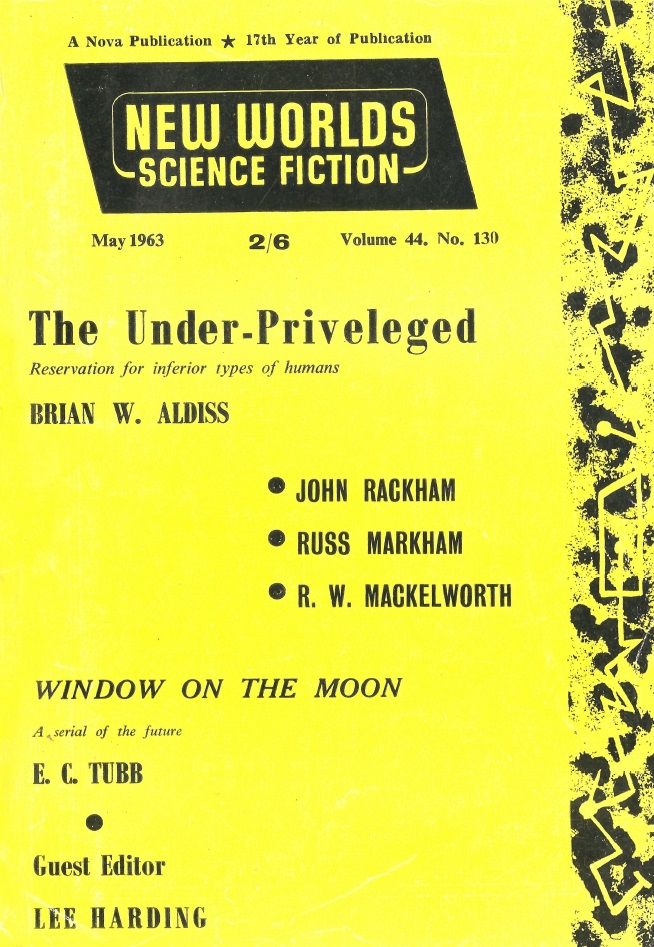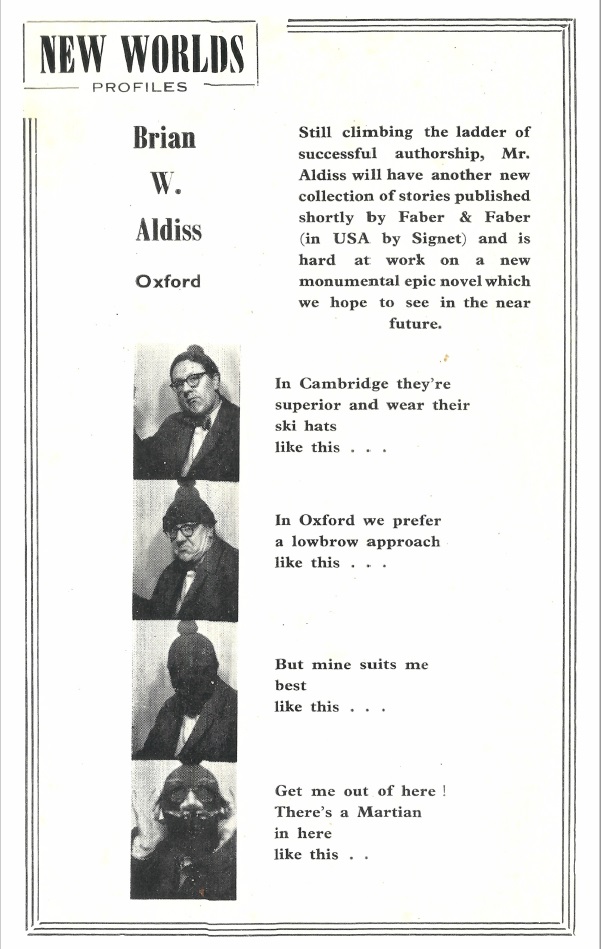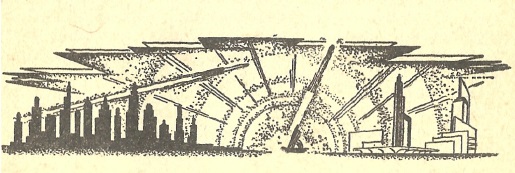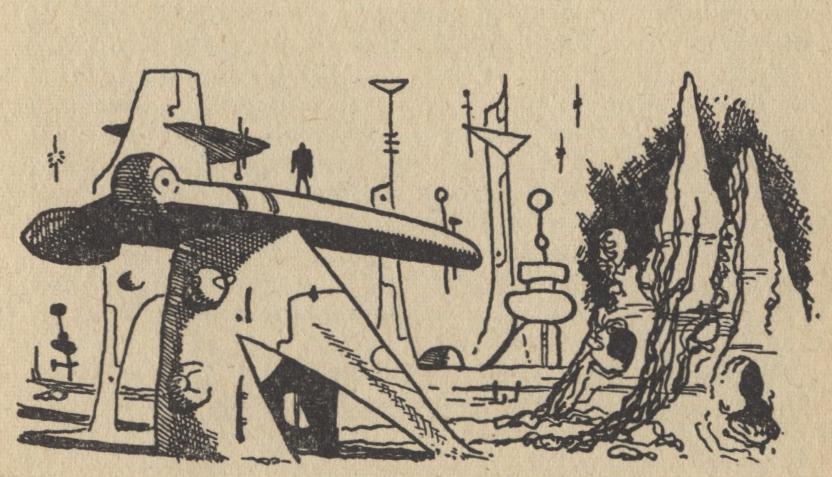
by Mark Yon
Hello again.
It is difficult to write about things fictional after world events of the last few days. Whilst I look on with horror at some of the observations of fellow travelers, the assassination has been noted here in Britain with a surreal quiet. The news, and indeed political commentary generally, has been oddly muted and yet remarkably acute. If comments at work and on my daily commute are anything to go by, the man on the street here has reacted with both revulsion and sadness. The world is a different place since last we spoke. Whatever your political persuasion, the event is a sobering one for us all.
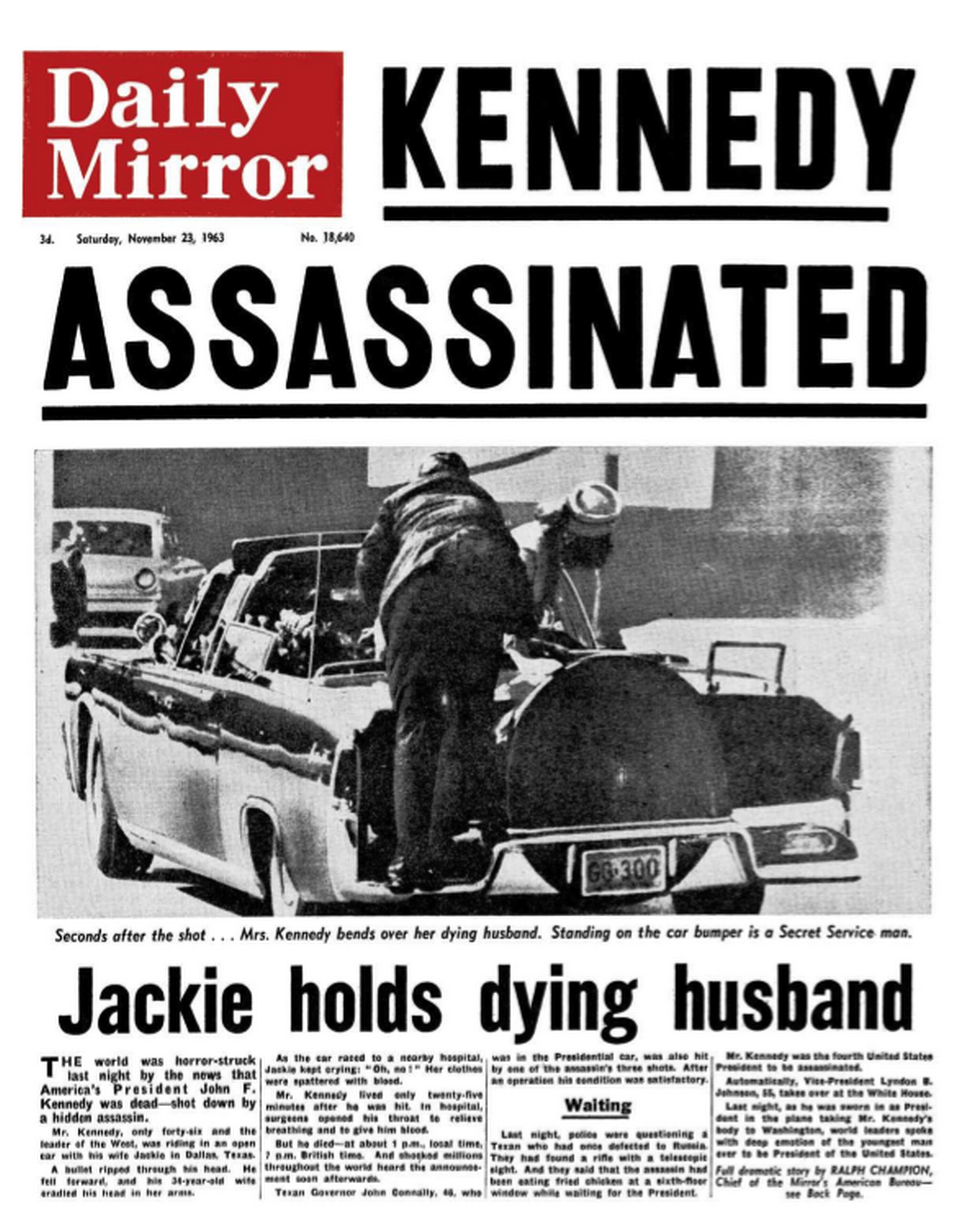
Our BBC correspondent Mr. Alastair Cook, who writes a Letter from America every week for our radio summed it up for us so well. I cannot say it better than this master of the English language, so I leave his radio broadcast as an effective response via the spoken word

The surreal events of November 22nd have managed to alter what I was hoping to spend more time talking about this month. The debut of the BBC television science fiction series Doctor Who was made the day after the assassination.
Despite the grim news preceding the programme, I really liked it. I think the series has potential, so much so that I think that it is one of the most exciting things I’ve seen on British television recently, despite being mainly for a family audience, which limits its depth. The actor portraying the Doctor, Mr. William Hartnell, is by turns wonderfully enigmatic and impressively grumpy. I look forward to seeing where this series goes.

This month’s cover is a surprisingly lurid shade of purple, which undoubtedly stands out, even if it makes the title print difficult to read.
s-f and mythology, by Ms. Roberta Rambelli
Another factual piece this month for the Editorial, in the form of a transcribed lecture given at the recent Trieste S-F Film Festival. It’s undoubtedly informative and educational, one for those who want to know the difference between their teratomorphical, their theriomorphical and their anthropomorphical categories of s-f. But it does seem to be an easy way out to writing an editorial – there’s no argument, no debate, no attempt to generate discussion here. As interesting as the article is, it doesn’t feel like an editorial.
To the still annoying lower-cased-titled stories!
relative genius, by Mr. Philip E. High
And here we have the return of Mr. High, last seen in May 1963 with the underwhelming point of no return. By comparison, this story of penal reform is better. The story begins with a bit of a “Prisoner of Zenda/Count of Monte Cristo” situation, with a man in a luxury prison with no memory of who he is and why he is there. Our man plots his escape and the tale turns into an entertaining jailbreak story. It’s not a patch on other similar stories, but it was entertaining, though the twist at the end didn’t really work for me. 3 out of 5.
when I come back, by Mr. Jonathan Burke
This is a creepy tale of people seemingly being possessed by things from somewhere else through their dreams, and the consequences of what happens as a result. On first reading I thought it was OK, but this is one I keep coming back to afterwards, because of its unyielding bleakness. It’s not particularly new – I’m reminded of Jack Finney’s American version of identity theft, The Body Snatchers , for example – but it does prey on the reader’s imagination rather well. Consequently my favourite story of the month. 4 out of 5.
the cliff-hangers, by Mr. R. W. Mackelworth
Mr. Mackelworth’s latest is a tale of future corporate shenanigans as one big business tries to outdo another. It’s a little like Mr. High’s story this month in that it reads as a tale of one group of people trying to get one up on another, though this story is rather on the side of the nasty people, at least at first. All get their come-uppance in the end. This is the latest of Mr Mackelworth’s rather bleak visions of the future, which rests easily alongside his previous stories of future justice and personal freedoms. I don’t think it is one of his strongest, however. 3 out of 5.
no brother of mine, by Mr. Robert Presslie
Another returning writer. Mr. Presslie’s story this month is about something youngster Davey finds in the family’s nuclear fallout shelter, a creature which, despite its strange alien appearance, may have more in common with humans than we, at first, believe. I think it is meant to be sad, but I was strangely unaffected by it. 3 out of 5.
Tee Vee Man, by R. A. Hargreaves.
In a month that seems appropriate with Doctor Who beginning and the death of a man widely regarded as the first President of ‘the television age,’ here’s a story that shows how pervasive the box in our front room may become. It reminded me of Mr. Robert Heinlein’s Future History stories, in that it’s a story of proficient people getting on with their jobs in a bright new future. Here our capable hero is in charge of maintaining a global network of television signals via satellite and the consequences of what happens when a developing African country loses their connection. The feel is a little less positive than Mr. Heinlein’s “can-do” version, but it reads well, and I could see more stories from this scenario in the future. 3 out of 5.

The Dark Mind (Part 2 of 3), by Mr. Colin Kapp
The second part of Mr. Kapp’s serial continues in the same fast paced, relentless manner of the first. Our hero, Ivan Dalroi, was left last issue in a dilemma – that he was being put into transfinite space by Failway without any means of support. Unsurprisingly, the cliffhanger plot point is quickly resolved in a rather psychedelic manner and what should have been a disaster ends up as a triumph. Dalroi returns from transfinite space a different man to unleash vengeance on his enemies, as a weapon and not a victim. Trains derail, lorries crash and buildings explode as Dalroi travels between worlds and vanquishes his enemies. It all gets rather frantic as Dalroi’s power is described with increasingly purple prose worthy of 1930’s pulp fiction. At one point his actions are shown by a series of words in bigger and bigger print, often with exclamation marks for emphasis, which seems a little unnecessary. Despite this, it’s still a fun read, even if some of the deathless dialogue is wince-inducing. 3 out of 5.

Lastly, we have the return of Mr. Leslie Flood’s Book Review page. This month Mr Flood comments on a number of novels and collections new to us but not to you: Mr. Walter M. Miller’s “very well observed” story collection Conditionally Human, Mr. James Gunn’s “brilliantly executed and conceived” The Joy Makers, Mr. Isaac Asimov’s story collection Nine Tomorrows (“Good stuff”) and two from Mr. Robert Heinlein: Methuselah’s Children (“Superlative science fiction of the grand scale”) and his juvenile Time for the Stars.
Of the books new to print here, Mr. Michael Moorcock’s fantasy hero Elric is given faint praise (Elric is “given an individual touch by deepening the purpleness of his prose and double-dyeing his mighty warrior with a dabbling of sorcery and insatiable blood-lust”), and even less positive is the review of Messer’s Greg and Geoffrey Hoyle’s The Fifth Planet, “a heavy-handed attempt to achieve topicality and neo-realism with a creaking plot.” Has Mr. Flood read any of the stories in New Worlds lately, I wonder?

In summary, this month’s New Worlds is a solid one, using the talents of a regular coterie of writers. The general feel is of standard work often well done but rarely outstanding, although this issue feels less erratic than some of the issues of late. The Editorial was an interesting one, even if it feels that something rushed out to fill a space. Nevertheless, in a time of uncertainty for sf magazines generally here, I guess that I should be glad that New Worlds has made it to the end of the year. There have been concerns over the year that, like some of its contemporaries, New Worlds may not do so.
And with that more positive note I will wish you a Merry Christmas from here in the UK. Here’s hoping that 1964, despite the events of recent days, may turn out to be an optimistic one. On a more positive note, The Beatles are doing a Christmas tour – 100 000 tickets over 30 shows, all sold out. Their pop dominance reigns supreme. Despite everything, some things still endure.
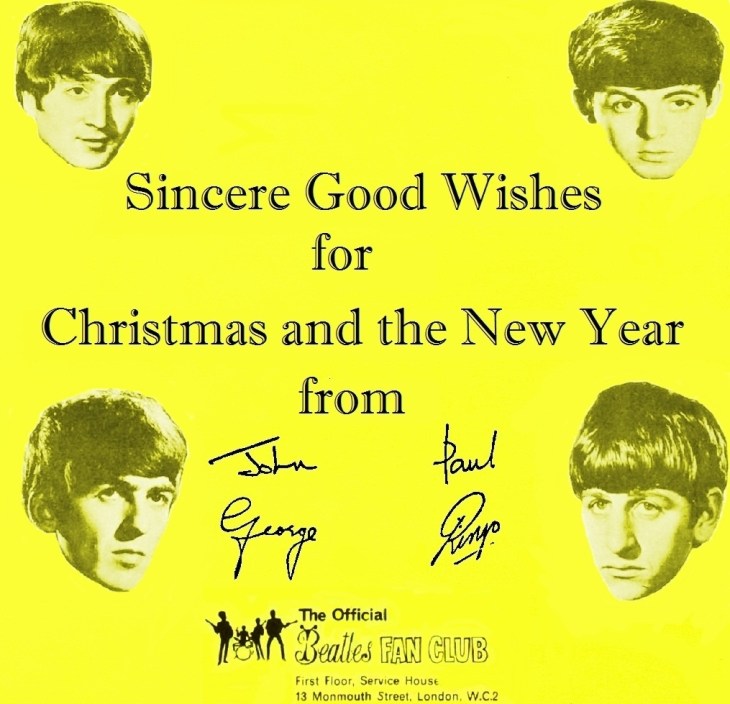
Until next month – and next year.

![[November 27, 1963] … Death, Doctors and Mythology ( <i>New Worlds, November 1963</i>)](https://galacticjourney.org/wp-content/uploads/2018/11/631127cover-672x372.jpg)

![[October 28, 1963] … Beatles, Spies and Spacecraft (<i>New Worlds, November 1963</i>)](https://galacticjourney.org/wp-content/uploads/2018/10/631028cover-667x372.jpg)




![[September 27, 1963] Beatles, Birds and Brunner (<i>New Worlds</i>, October 1963)](https://galacticjourney.org/wp-content/uploads/2018/09/630927cover-672x372.jpg)
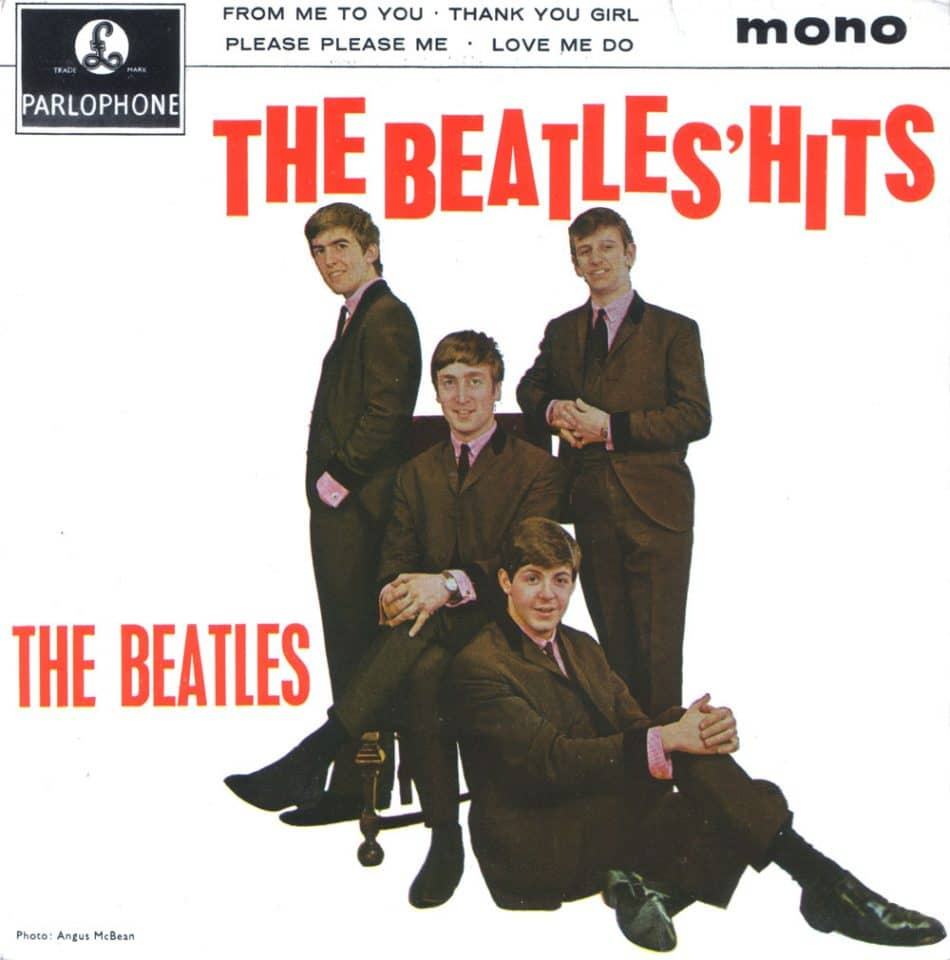
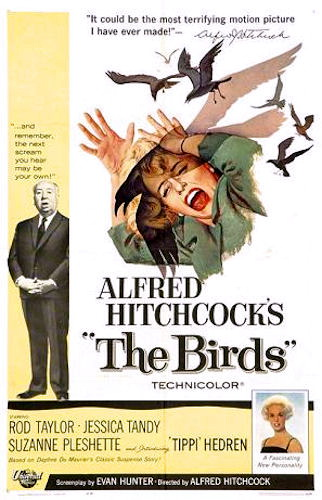
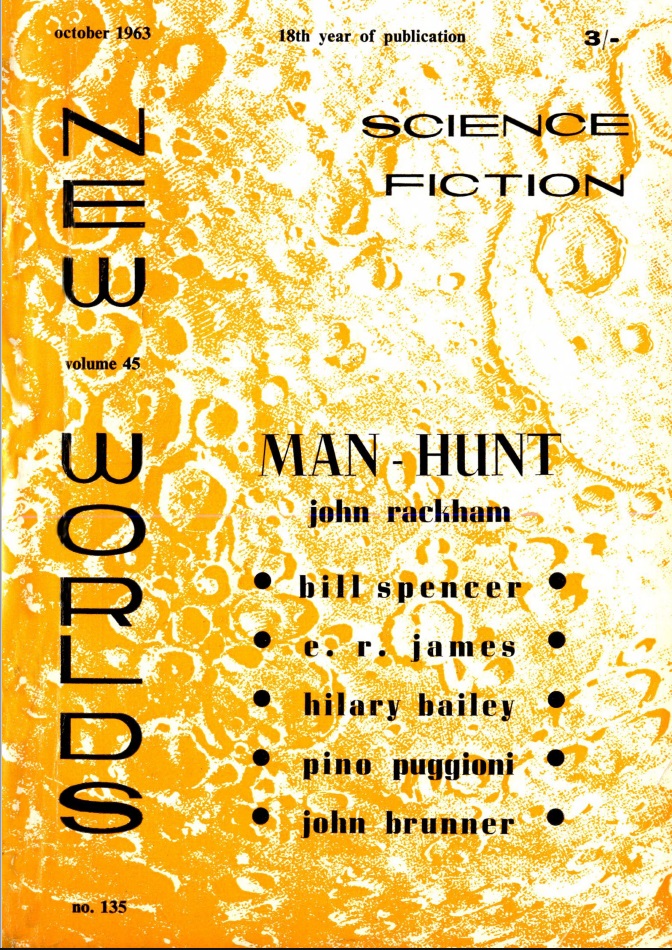

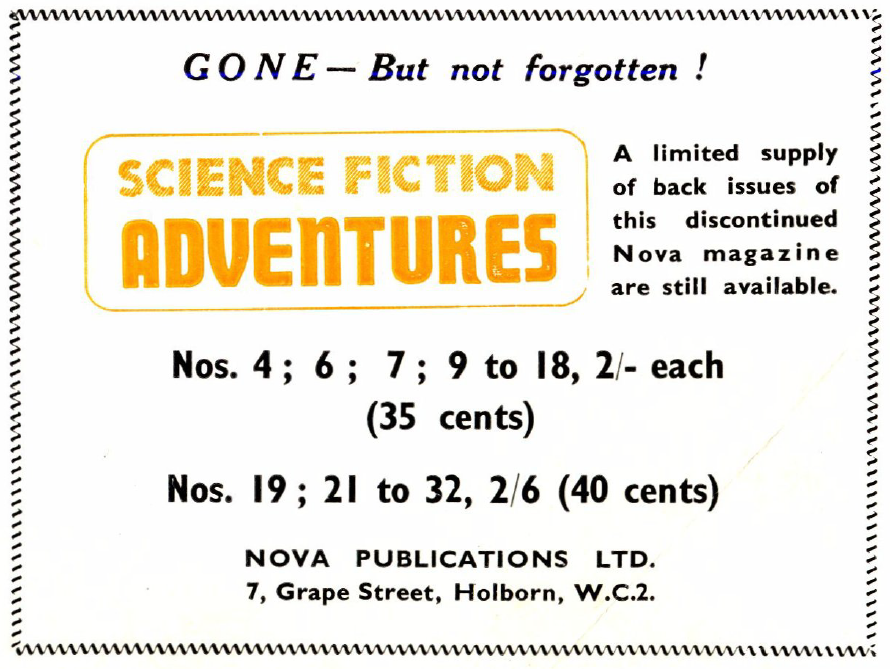
![[August 27, 1963] Ups and Downs #2 <i>New Worlds, September 1963</i>](https://galacticjourney.org/wp-content/uploads/2018/08/630827cover-409x372.jpg)
